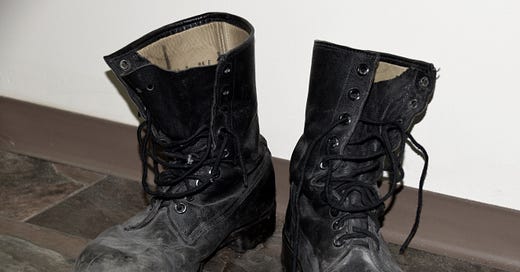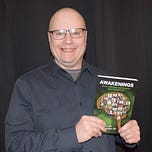
Anyone who has a mental illness will likely have experienced it. A nervous or mental breakdown or crisis situation can be devastating. One of the first and most important things you can do when you are in crisis is to get help. It may be relevant to have a document on your person or a medic-alert bracelet to indicate that you have a mental illness, and who should be contacted in an emergency or crisis. There should be a plan laid out (I often discuss the Wellness Recovery Action Plan) that will help others guide you through the process of finding help and getting better.
Before I forget to mention it, I wanted to discuss some books that I have found incredibly helpful in learning not just about the facts of schizophrenia, but also about how to develop understanding and compassion for people with mental illness. The first book is a bit hard for me to discuss, as the author, a previously celebrated psychiatrist, got some negative attention for something he said and his reputation was forever tarnished. I still love his book, it is called “Malady of the Mind” and is one of the best books I have read about schizophrenia. The other is a book written by an author who spent her time visiting patients in The Douglas Hospital in Montreal and showed such kindness, help and compassion for the people she visited on a volunteer basis that I feel anyone wanting wanting to develop understanding for people with mental health issues should read it. The title is “The Ghost Garden” and it can be found in most libraries, many bookstores, and on amazon.
I want to give some credit to The Schizophrenia Society of Alberta for this podcast. At times, I was at a bit of a loss as to what to say about crisis situations, and I drew on some elements of what The Society says to do when a person is in crisis. One of the hard parts about recording and writing this is, when I am in psychosis, I am almost completely convinced my distress is caused by extreme situations, not my illness. It is important here to say that it is not possible to take a person in this situation who is experiencing psychosis and talk them out of their delusions. I actually had one student at a presentation ask if you could yell at a person in psychosis to shock them out of their delusional thinking and hallucinations. I was shocked that someone might try such a thing on a person in such a state of fear, delusion and vulnerability.
Again, I have to admit something that I’m not terribly proud of. I don’t know the best way to deal with a person in a crisis situation. I previously had a job that encouraged me to take the “mental health first aid” course, but I never found the time. In my opinion though, I often look back to the lecture I attended by Dr. Xavier Amador, who had a brother with schizophrenia and developed a method of connecting with loved ones and building trust over time to get them to admit they needed help. Quick and extremely helpful video from Dr. Amador here:
Dr. Amador founded something called “The Leap Institute” specifically for people who wanted to help convince those with anosognosia (a condition in which a person is unaware they are ill) that they did need help. LEAP stands for Listen, Empathize, Agree, and Partner. It is all about understanding the person for who they are and building trust.
To just jump back for a moment, I did want to say that I know very little about what to say to people who are in a mental health crisis situation. What I do know is they want an ally, they want a trusted friend. When I have a friend who is at or near the crisis point, I offer to take them to get help, and to wait with them until they are satisfied their problems have been addressed. I also am not afraid to talk to people on the street who may be struggling. For a time, I carried gift cards for $5 or $6 for a coffee shop to give to people who were struggling without enabling any addiction problem. I have found that people who are suffering from any form of psychosis most often simply want someone to acknowledge them, to talk to them and to listen to them. Then, if trust can be built I will do what I can to help them or direct them to where they can get help. I have had to admit that I am only one person though and all too often all I can do is treat them as I would like to be treated, as a human being.












Share this post